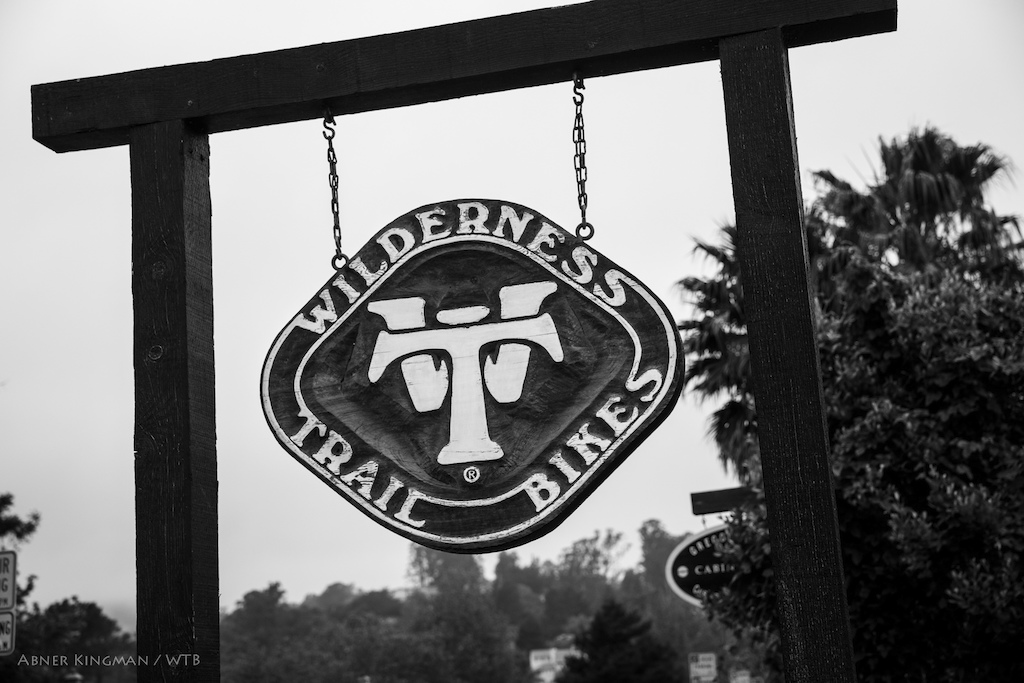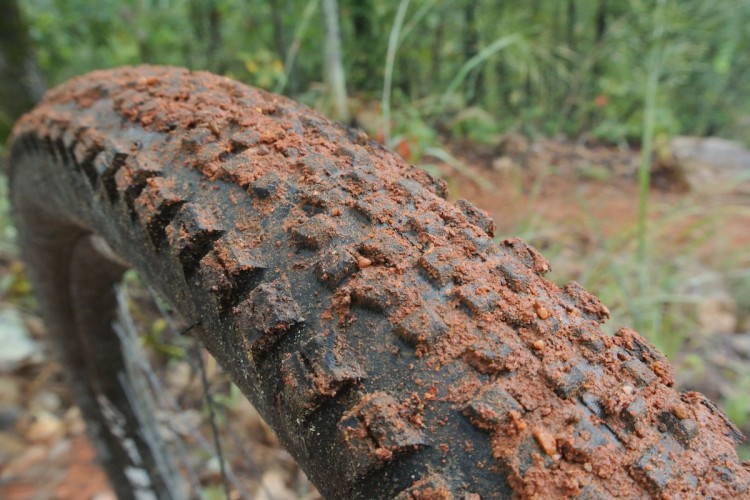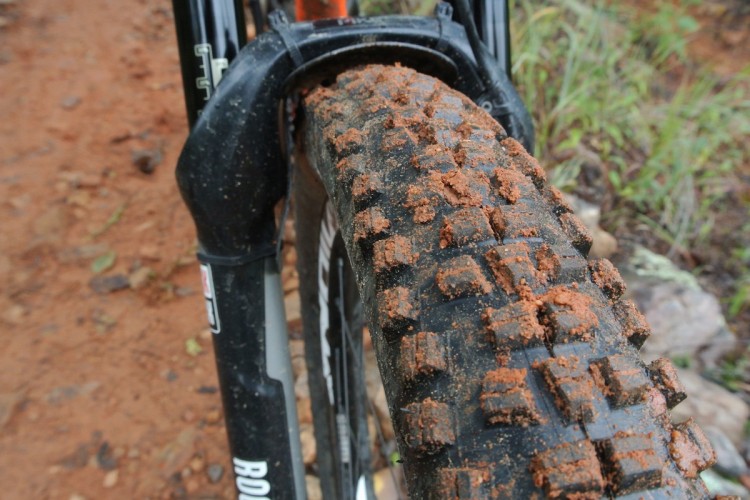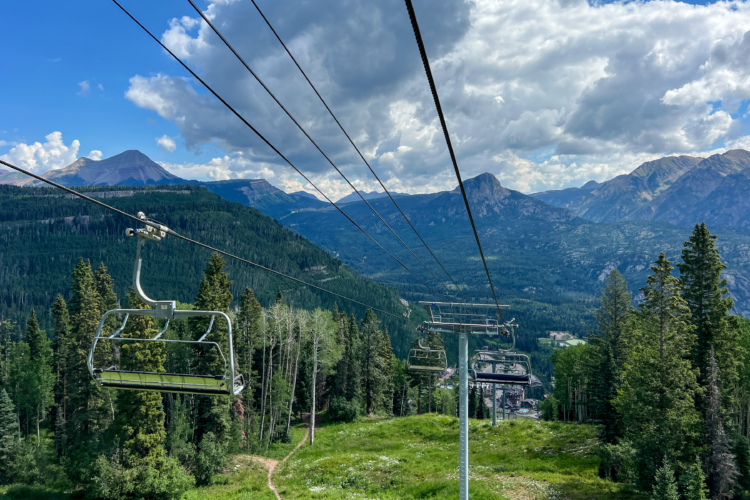The notes from my one-and-a-half hour chat with Patrick Seidler, president and half owner of Wilderness Trail Bikes (WTB), represent my desperate attempts to keep up. Exclamation points, trailing non-sequiturs, and lots of “wha..?” and “?” meant to indicate that I should circle back, clarify.
Seidler, 58, is an intense presence and one you’d rather be this side of. Here in the modest offices of WTB world headquarters in Mill Valley, 90’s era promotional posters for components hover over titles in the bookshelf that include “Nixon in China,” “How to Manage,” and a plethora of technical manuals about tires and rims with post-it notes blooming out of the long and short edges, turning them into little paper tricerytops’. Later he’ll come around the table and regale me with highlighted tables on tire pressure, and it will remind me how much I hate math. It seems important to him that I understand—he teacher, me struggling student—but the futility dawns on him and we move on.

I’ve worked with Patrick for over ten years, but always on the road advocacy side. He is a fierce and dogged promoter of bicycle infrastructure in Marin and has been instrumental in many of the achievements that have been made over the past 25 years. But why road? Why not mountain?
“I grew up riding bikes all over Mt. Tam just like everyone else. When they tried to shut it down in the early 90’s, I worked with Jim Jacobson and the Bicycle Trails Council to push back. We had some wins, but mostly losses.”
Seidler recounts the legendary Marin County Open Space Trails Commission debacle where a notoriously anti-bike individual was appointed to represent “the bike interest.”
“She was the epitome of a wolf-in-sheep’s-clothing, but she happened to be married to a man who wrote a book about biking in Marin.” This wolf is still stalking two-wheeled sheep today, and Seidler does not exaggerate her toxicity.
“By 1997, we decided there was no return on investment with offroad advocacy. We were disgusted with the conversation. The name calling, the insults—it was hostile and wearing. When it was said I was only trying to sell more bike stuff, I was out.”
But he wasn’t really out out.
In a maneuver of grandiosity seasoned with equal parts idealism and youthful hubris, Seidler determined that the best way to get at this problem was to get everyone on bikes. Everyone, everywhere, for everything. He’d been to Japan, seen massive bike parking lots at train stations and in towns. He repeats with gumption and gusto that the bicycle is the most efficient machine, the most effective form of transportation ever devised.
“Our goal was to get so many people on bikes that they’d have to open all the trails on the mountain!” But that was a heavy lift. With a head shake and a half-smile he admits he never thought it would take this long, or be this hard.
“We made the Kool Aid and then drank it—save the planet, human connection, mobility, environment—all of it. It’s ironic that the workaround became the end goal.”

WTB has some very solid partnerships as well as loyal and long serving employees. Mark Slate, co-owner of WTB, is one of the original founders and an inaugural member of the Mountain Bike Hall of Fame. Slate is legendary in the industry for his innovative designs, and he and Seidler have forged a brotherhood while building their bicycle company from the garage to a global brand.
Susie Weaver, Corporate Affairs, has been with the company for 27 years, Fred Falk, Director of Operations–29 years. Gary Gleason, Director of Global Sales, 23 years. The long-lived list goes on. Local, state, national and inter-galactic mountain bike star Mark Weir has been the face of the brand for 20 years. And really, go take a look in your garage. Chances are high that one or more of your bikes is graced with some kind of WTB, and they are not slowing down anytime soon. With a new factory in Shenzen, China where WTB holds the controlling interest, and offices in Nevada City, California, Pilzen (Chzech Republic), and Taipei (Taiwan), you’ll see just as much or more of this iconic brand that Seidler repeatedly calls “the last of the Mohicans here in Marin.”
As he starts ramping up again, intent on imparting the intricacies of industrial processing, I boldly interrupt, and not for the first time.
“What makes you happy?”
His intensity drops a few levels, a visible softening.
“I love travelling, seeing new cultures, seeing how they use bikes. Riding bikes makes people happy. Everywhere I go, people on bikes are happy.”
I asked if he still rides dirt.
“I ride mostly to get around, but I do still hit the trails. I just got kicked off the ride-to-school team—my daughter is at that age where it just isn’t cool to ride with the parents anymore.” He shrugs and adds that it’s not his first time being uncool—he has a 28-year-old daughter as well.

Seidler is off to Taiwan the next day. When he returns he will get back to flogging elected officials and local agency staffers regarding inconsistencies between plans, policies, resolutions, budgets, and contracts for bicycle infrastructure in Marin. He is glad of the work that has been done for mountain bike advocacy in his absence, and hopes to turn some of his laser focus back in that direction in the coming years. Everyone on bikes everywhere all the time. Never done, but closer. Much closer.











0 Comments